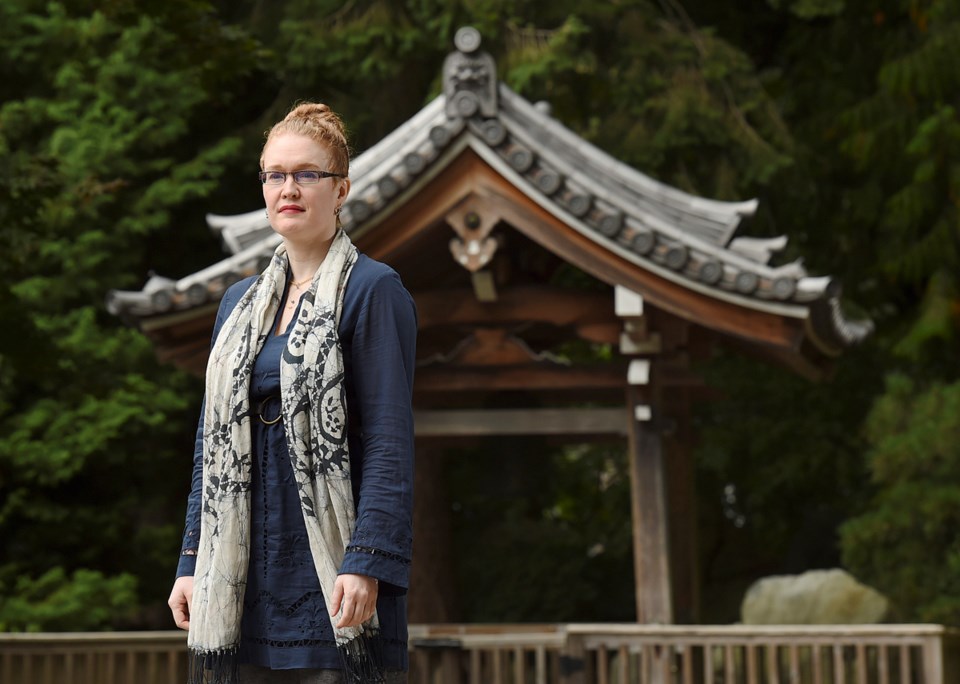Patrick Couling started an Introduction to Buddhism course because of a phenomenon he saw among Vancouverites.
âWe realized that there was this large, large group of people out there who are spiritual but not religious, which seems like most Â鶹´«Ã½Ó³»people,â he says. âThen, if you ask them, what religion are you, they say, well, Iâm Buddhist. But they have no idea what it means and they have no idea where to go.â
Although he is a member of the Â鶹´«Ã½Ó³»Buddhist Temple in Japantown, the course he set out to develop is emphatically pan-Buddhist. He has enlisted representatives of diverse streams of Buddhist practice to present on different nights of the series.
âIt is not meant to get participants in the program into a Dharma centre run by any of those individuals,â says Couling. âIt is to get the interested people beyond interested and get them out and participating at some Dharma centre. Any one. We donât care.â
Couling quotes the Dalai Lama, who was asked if one has to be a Buddhist to become enlightened. The Tibetan spiritual leader replied, no, but it is necessary to choose a path and practise.
âAnd that path can be almost anything,â Couling says. âBut it has to resonate with you. It has to be right. So it could be a Christian path. It could be an Islamic path. It could be anything. We also hold that out to them and say, guys, it may not be that Buddhism is for you. But we do want you to get interested and to get out there and to search for what resonates with you.â
Couling and his group of teachers are just finishing up the third round of the intro course. It is offered twice a year and, while it takes place at Coulingâs home temple, the program itself is unaffiliated. Couling adds that the effort to include every stream of Buddhism comes up against simple linguistic barriers.
âPeople ask me, why do you choose these particular ones?â He explains, âI say, listen, these people present in English, for one thing.â Many Buddhist facilities operate mostly or exclusively in Mandarin, Cantonese, Sinhalese, Thai or Khmer. Unilingual Anglos may be welcomed there, but they may be a bit disoriented. Still, Couling provides participants with resources on every Buddhist group in the city.
Orienting the disoriented is the key to the series, says professor Jessica Main. Main is the Robert H. N. Ho Family Foundation Chair in Buddhism and Contemporary Society at UBC and part of her mission is to reach beyond academics.
âThe programâs mandate is to do a lot of outreach of the sort connected with public education and historical knowledge about Buddhism,â says Main. âBut, in addition, [the founders of her chair] are quite interested in peaceful cooperation and interaction of local Buddhist groups and people who are interested in Buddhism in the Lower Mainland.â
She also happens to be a member of Â鶹´«Ã½Ó³»Buddhist Temple. However, her presentation is the first in the series because she provides an academicâs overview for lay people. She acknowledges the novelty of the series, in that it is rare to find an offering that incorporates the many historically diverse traditions within Buddhism.
Appropriately for an intro course, the series is explicitly welcoming of people with little to no knowledge of the subject, including simple things that can be the most intimidating barriers for first-time explorers.
âIt explains things that are often taken for granted,â says Main. âHow do you act when you enter a temple? Whatâs the connection between these ideas and Buddhist practice? In a lot of ways, itâs an introduction to things that are difficult to find introductions to and given in the framework that is really not asking for affiliation of any kind.â
Her own focus on Buddhism is a result of an ongoing narrowing of her interests. Growing up in Calgary, she had a broad curiosity about big ideas.
âI was fascinated by the history of religions and ideas in art and architecture and philosophy,â she says. âAs I was starting to specialize in my undergraduate at the University of Calgary, I had an opportunity to live in Japan for a year as an exchange student. At the end of that year, my interest in religion in general had become an interest in Japanese religions, and Buddhism in particular.â
For the introductory course, Main shares with Couling a modest hope that a few people will get something positive out of it.
âWhat I hope â and again this is in my role as an educator â is that they know a little bit more about whatâs going on in their local community,â says Main.
âAnd groups of people that they might not necessarily have connections with otherwise, whether theyâre already Buddhist, not Buddhist, just attending out of interest in the philosophy, or because itâs a cool thing to do, or whatever their motivations are, this is something that can connect people to their neighbours.
âThat to me is the best thing that comes out of it.â
@Pat604Johnson



